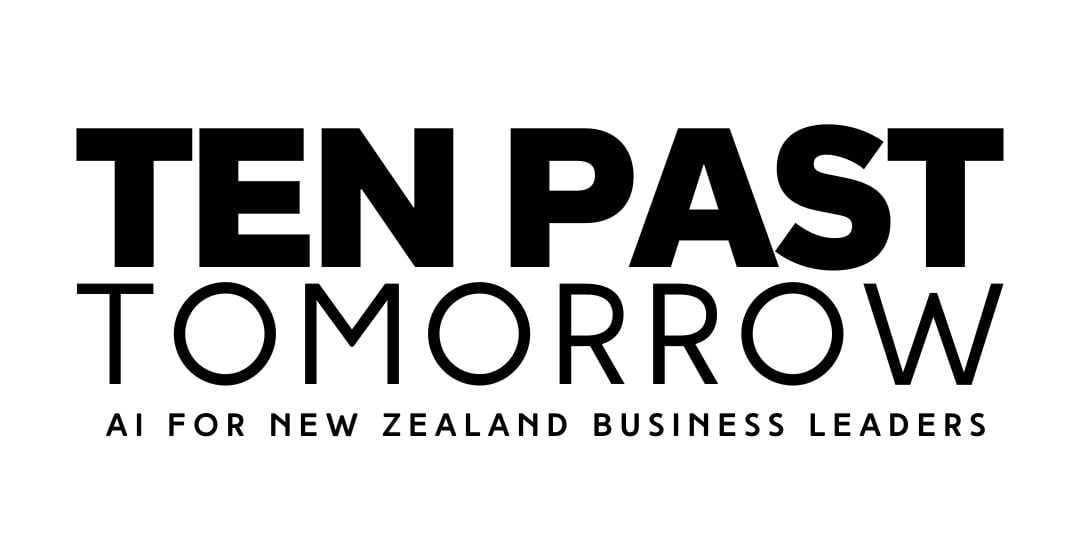What does AI mean for universities?
Some of the most common questions I get asked during my public speaking engagements relate to how I think AI is going to affect university, whether AI will devalue the role of higher education, and also “what should I be encouraging my children to learn?”
On the one hand, these are somewhat surprising questions, given that I work almost exclusively with senior business leaders focused on using AI for commercial efficiency and productivity gains.
On the other hand though, I get it.
AI has far-reaching implications across almost all facets of society. It is burrowing its digital tentacles into all corners of our lives.
Education is certainly not immune to the AI revolution.
And so everyone, business leaders included, want to know how AI will affect higher education and their children.
So, today I’m going to take a break from the regular scheduled programming of business-centric AI themes that I usually write about, and develop some of my thoughts about AI in higher education.
Side note: Also relevant is that this week I started to work with the Business School of one of our prominent universities. So, the topics and my thoughts below are more than just personal for me now. They’re professional too, and will form the foundation of how I approach my work with this university to re-imagine what it means to be a business school in the age of AI.
The limitations of AI tools "re-designed" for education
This week I found a super insightful article by Nick Potkalitsky, a Doctor of Philosophy, English teacher, researcher, and AI consultant (and presumably very busy man) based in Miami.
I highly recommend his article, which discusses the introduction of ChatGPT Edu, a version of ChatGPT designed specifically for universities.
For those too lazy to click and read Nick's article, here's my favourite part of it...
The centerpiece of OpenAI's new educational offerings is ChatGPT Edu, a version of ChatGPT specifically designed for university environments. ChatGPT Edu aims to provide affordable, enterprise-level AI tools to students, faculty, researchers, and campus operations...
...OpenAI’s promotional material highlights applications such as personalized tutoring, grant application assistance, and language learning tools. However, these examples do not fully address the need for tools that are designed in accordance with explicitly educational principles and goals. Effective educational tools should foster critical thinking, provoke extended inquiry, and encourage deep research. (My emphasis added)
While Potkalitsky acknowledges the potential benefits of generic tools being used in education, he raises very important questions about their true educational value, arguing that for AI tools to have real value in the education sector they must be designed in accordance with explicit educational principles and goals.
I agree wholeheartedly with Potkalitsky's observations, and would add my own thoughts to them... that the successful integration of AI in education should be based on empowering educators to understand and effectively use AI tools, rather than simply slapping a "Now, New & Improved For Education!" sticker on AI tools like ChatGPT and hoping for the best.
A more sceptical way to word that would be… education needs more than just OpenAI providing bulk discounts to ChatGPT licences for universities so they can grab the cash and line their own pockets.
I think Potkalitsky's article does a great job of highlighting the limitations of tools like ChatGPT Edu in fostering critical thinking and deep research skills - arguably some of the most important skills that universities teach students.
Yes... AI tools like ChatGPT offer advanced capabilities such as data analysis, web browsing, and document summarization, (which are all incredibly valuable in the workplace), BUT... they do not inherently cultivate the complex skills required for high-level academic learning.
The key takeaway here is that AI tools designed without explicit educational principles risk becoming just student conveniences rather than transformative resources that challenge and engage them.
The importance of AI literacy and competent prompting for educators
Over the past few years, I have spent a lot of time thinking about how AI will revolutionise the world of education.
Both my parents were teachers, and many branches on both sides of my family tree are occupied by teachers. Education is in my DNA and as such, it's something I care a lot about.
It’s my strong belief that to effectively integrate AI into education, educators must be given a deep understanding of how these tools work and how to use them to enhance learning.
This requires a focus on raising AI literacy for educators; which at a foundational level involves them understanding the capabilities, limitations, and potential biases of AI systems.
In other words, I feel passionately that educators must master the art of AI prompting; crafting inputs to guide AI tools to generate outputs aligned with specific educational goals and pedagogy.
Through AI literacy and competent prompting skills, educators will be able to steer and mould AI tools to support their pedagogy and teaching objectives.
Then, and only then, will AI have a meaningful, responsible and noble place in education. It won't be simply "AI for AI’s sake", but AI will truly become a technology that augments and strengthens proven, time-honoured pedagogy.
The essence of education lies in fostering critical thinking, extended inquiry, and deep research.
AI tools should be used to support these goals, not to simplify or automate the learning process.
The end goal must be for educators to leverage AI to encourage students to engage in complex problem-solving, creative thinking, and collaborative learning. I hope to play my part in making that a reality for the lecturers and students I’m beginning to work with.
 "No, they aren't AI sideburns. I grew them myself. Now get back to class!"
"No, they aren't AI sideburns. I grew them myself. Now get back to class!"
The potential of AI to transform education
When applied by skilled educators, AI tools have the potential to open up new and innovative possibilities for teaching and learning.
That is really exciting.
For example, AI could be used to (carefully and considerately) personalise learning experiences; adapting content and pacing to individual student needs.
It could also facilitate evolved, active, assessment techniques, enabling students to demonstrate their acquired knowledge in more meaningful and engaging ways than writing essays - an assessment methodology which truth be told has been on its last legs for a long time, and that AI will hopefully deliver the knock out blow to very soon.
Additionally, AI could support creative problem-solving by providing students with access to vast amounts of information and helping them identify patterns and connections.
By harnessing the potential of AI in these ways (and many more), educators could address the concerns raised in Potkalitsky's article about the true educational value of AI tools.
How do we convert those 'coulds' into more than just potential?...
The road ahead: A path of development
The responsible integration of AI in education will require a long-term, wide-ranging effort involving educators, researchers, and policymakers.
As Potkalitsky's article points out so well, it is not enough to simply release generic AI tools with bulk discounts for educational institutions, and expect them to magically “evolve education”.
Instead, we’ll need ongoing professional development to help educators understand and effectively use these tools.
I foresee a huge need for research to explore the impact of AI on learning outcomes and to identify best practices for integrating AI into education.
And there’ll need to be strong collaboration among all higher education stakeholders to ensure that AI is used in a way that truly benefits students and enhances the educational experience.
Conclusion
Empowering educators to understand and effectively use AI tools will be the most crucial element of the equation, if we are to see successful integration of AI into education in the coming years.
Rather than relying on generic AI tools and platforms, the focus should be on developing AI literacy among educators and enabling them to use AI tools in ways that support their teaching goals.
If we can do all of that, I am optimistic we can harness the potential of AI to transform education, while ensuring that it remains grounded in the essential principles of critical thinking, deep research, and lifelong learning.






